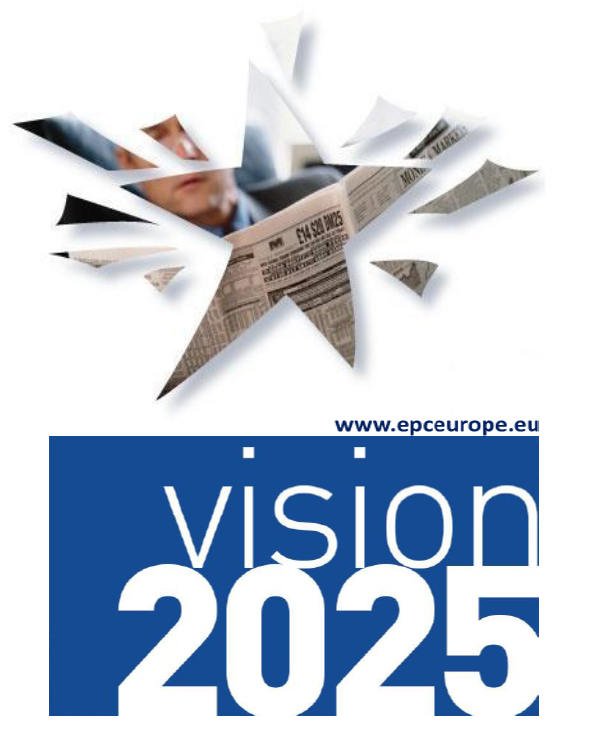EPC releases its 2025 Policy Vision with key recommendations
- EPC

- Jan 30, 2020
- 3 min read
The news media sector is diverse and highly ethical, one that is highly innovative and
embracing of change, and one that has integrity and independence at its core. Despite all the business and regulatory challenges that need to be addressed, EPC members express optimism about their place in society, where the values of a free and independent press still come through clearly as the drivers for media business leaders today.
In order for the news publishing sector to be able to sustain professional journalism, counter fake news and populate the internet with valuable content that is fact-checked and whose authors and publishers are bound by codes of conduct and legal liability, there needs to be a fair regulatory environment for all, and a significant re-balancing of the digital content eco-system where, currently, all the market power is in the hands of a tiny number of US based global players.
In this, the EPC’s Policy Vision addressed to the European Institutions and Member States,
we present specific proposals to support professional journalistic content, to harness the challenges posed by the digital economy and to shine a light on the dominant platform gatekeepers. Where there is so much at stake, market forces alone are not enough to ensure that innovation and competition can thrive.
We have explained the challenges we face and the remedies we propose in detail in our Vision Paper. Below, we highlight just some of the requirements for a fairer and functioning regulatory environment for all. We need:
• to modernise EU competition policy and regulation and establish an ex ante regulatory regime designed to tackle the challenges posed by the platform economy, to monitor and act quickly to prevent damaging market distortion before competition is irreparably damaged; to consider greater use of structural remedies to break up dominant platforms; scrutiny of “killer acquisitions” by already dominant platforms
•to require transparency in the currently opaque digital advertising sector: to shine a light on the Google black box, to require Google to disclose how its algorithm ranks news content (to prevent discrimination against publishers); to require Google to be subject to Fair, Reasonable and Non-Discriminatory legal obligations in the application of results (measured by viewability); transparent use of AI systems; and torequire Facebook to reveal its ranking algorithm
• to review privacy regulation whereby Google disingenuously hides behind GDPR to refuse publishers access to data generated by their own content and readers
•to tackle Fake News and to require Google to prioritise original news content over copycat stories: the major platforms deploy black box algorithms to make deliberate editorial decisions about who gets to see what, based on merely commercial, not societal, objectives, hence the rise of click bait and fake news
• to tackle illegal content and review the safe harbours laid down in the eCommerce Directive and via the so-called Digital Services Act to recognise that the dominant platforms are not just tech companies: they are advertising companies, shop fronts and media companies. In particular, dominant platforms should be liable for illegal third-party content if the originator has evaded effective law enforcement through anonymity or by omitting to indicate an identifiable address
•to ensure non-discriminatory access to dominant platform services who have created the rules of the game to their own advantage, for example in programmatic advertising, where the company acts as buyer, seller, broker and platform; in data collection (Google and Facebook) and via the app stores (Apple and Google), that act as a default and discriminatory gateway in terms of reader access and payment systems
• to use the Digital Tax Roadmap agreed by the G7 to enforce fair taxation globally: competition between EPC members and the major online platforms cannot be restored without a level playing field in taxation. Full transparency on platform revenues derived from advertising in any one country would allow an accurate calculation to be made and prevent the current practice of tax avoidance in profitable territories
As publishers, we take our responsibility and the trust of our readers extremely seriously, but a few multi-billion non-EU companies have become the default gateway through which EU citizens consume news content, information and entertainment. This creates direct and harmful economic consequences for the future of media publishing, through the dominance of these players in data collection, either through online digital advertising market dominated by Google and Facebook, or via the App stores, dominated by Apple and Google.
We call on EU regulators to address the rise in power of the major online platforms, acknowledge their impact on the digital media ecosystem and, in particular, on professional journalism.
We call on EU regulators to take the necessary steps to demand greater transparency, accountability and responsibility from the dominant platforms and to establish a fair regulatory framework that stimulates the growth of fact-based journalism and celebrates our valued independent European press.
Download the EPC Vision 2025




